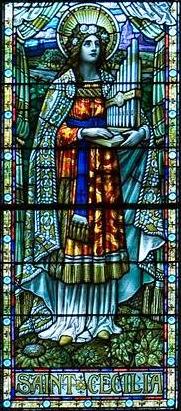 SENCE OF HUMOR regarding the liturgy and the Church will serve one well. A dear friend (and faithful servant of the Church) has no shortage of pithy phrases. He once expounded upon the virtues of a charism he refers to as the “Ministry of the Holy Hammer.”
SENCE OF HUMOR regarding the liturgy and the Church will serve one well. A dear friend (and faithful servant of the Church) has no shortage of pithy phrases. He once expounded upon the virtues of a charism he refers to as the “Ministry of the Holy Hammer.”
There are many gifts of the Holy Spirit. We each have a special “charism”. In Greek: “χάρισμα” which means charisma. The ability to say “no” is an important gift of which much good can come, if used in conjunction with a certain gift of the Holy Sprit: Wisdom. And part of wisdom is the judicious use of mercy and kindness.
However, this “charism” of laying down the “Holy Hammer” when necessary, does not happen nearly often enough to our all too human liking.
NUMBERS 21 TELLS THE STORY of the people complaining against Moses and the Lord. The Lord sent a poisonous serpent who bit the people, and they died.
The sinner in me takes perverse pleasure in this part of the story. A dire consequence bestowed upon those who complain needlessly and without gratitude resonates deeply in my heart. Sinner that I am is disappointed by the following lines of scripture:
The Lord tells Moses to make a serpent of bronze and put it on a pole. Whoever was bitten and looks up on the bronze serpent shall live. This part of the story annoys me. (Clearly, I am a great sinner bereft of mercy and compassion upon those whom I judge to be most annoying.)
However, there is a ministry that can only be carried out by a few—a small number who are willing to take responsibility for decisions especially when it is far easier to simply capitulate.
Peter Kwasniewski was kind enough to write this article: Fidelity to Liturgical Law and the Rights of the Faithful. In it he brings for the right of every Roman Catholic to demand the Liturgy be authentic and free of abuses. This is not an extremist view. This is the right of every Roman Catholic. This article is also a very useful resource of various liturgical documents that make clear in no uncertain terms what is and what is not permissible in the liturgy.
A MOST SANE and reasonable example comes to mind: Dr. Jerry Galipeau, former Vice President and Chief Publishing Officer at J. S. Paluch Company and World Library Publications, gave a workshop in 2010 on the new translation of the Roman Missal at the Paulist Center in Boston. He said (I may be paraphrasing.) “The people deserve to have these words proclaimed well.” This stuck in my mind and my heart.
The people deserve to have these words proclaimed well.
Is that so hard? Sometimes, it seems that it is so—regardless of the translation—new or old.
The Mass cannot devolve into personal commentary. (Translation seems to have no bearing on this.) Disregarding the Roman Rite or the rite of the sacraments altogether is a gross dereliction of duty. It is depriving the people of the Living Word. It is nothing short of a betrayal of the people, for the prayers belong to them and not solely to the clergy.
• “Insidious Form” of Clericalism? A Jesuit Speaks Out
THIS LEADS TO TWO UNDERSTANDINGS of the word “pastoral.” The ability to make wise decisions in the best interest of the assembled community is vital. This is Pastoral Judgment which is one of the Three Judgments: One Evaluation found in Sing to the Lord: Music in Divine Worship (SttL). But “pastoral” is often understood as an “out” to approve in the liturgy what is less than ideal—or blatantly not allowed. A pastoral decision to be flexible can be a healthy process if working toward the ideal. But it can be unhealthy if used to simply capitulate.
I propose another important understanding of the word “pastoral.” To strive and model model it whenever opportunity presents—is a pastoral decision. To do so is certainly in the best interest of the community. E.g., Striving to sing the Mass is a pastoral decision. Saying “no” to singing one’s favorite playlist at Mass can be a pastoral decision.
Saying “no” is difficult. But it can mean saying “yes” to something far greater. Offering to God one’s best is a positive pastoral decision.
THOSE WITH THE “CHARISM” OF THE “HOLY HAMMER” have a very special task and responsibility. In all seriousness, when saying “no” to something—e.g., a request of secular music for a funeral, or e.g., calling to task someone who invents their own prayers to the liturgy—it is never, never, never, never called for to be disrespectful, rude, condescending, uncharitable, etc.
The source is important. When dealing with lay people, the utmost charity is always called for. They are not trained in liturgy. Offer alternatives. Good ones! Be ready for anything, and be kind.
When dealing with another source—clergy—be kind, respectful, and charitable. For you do not know half of the burdens and responsibilities they carry, nor their background which called them to such a life of dedication to the Lord.
Ultimately, the “Ministry of the Holy Hammer” is something like Good Cop and Bad Cop. It comes from leadership. Be firm. Be clear. Set specific expectations. Enforce them with love.
In the mean time, teach by kindly example in how you live your life.
AMDG


